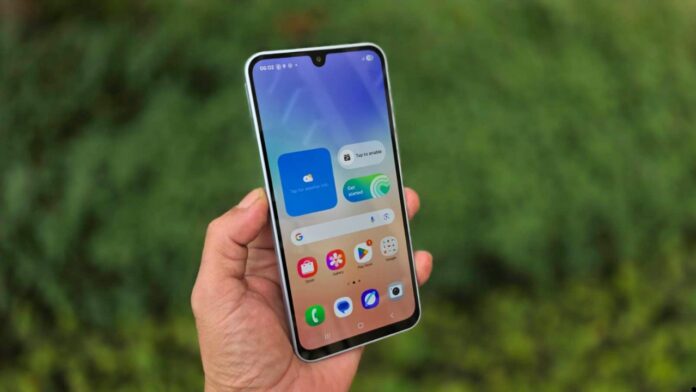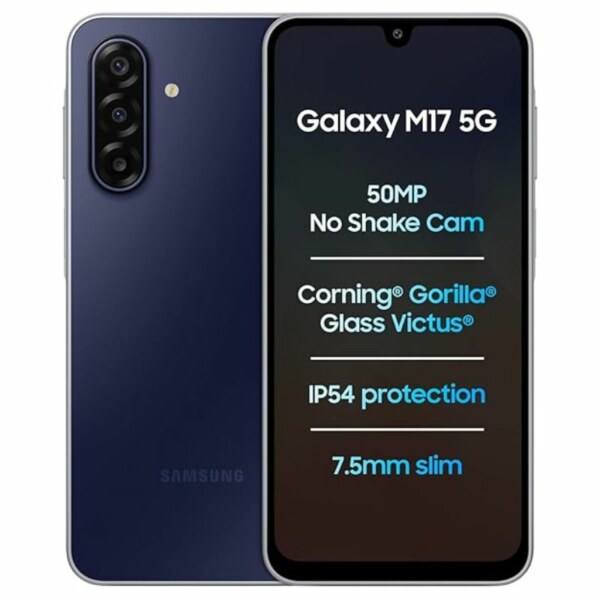Budget smartphones are becoming increasingly competitive and brands are now offering features that used to be exclusive to high-end models. Even when they spend less than ₹15,000, buyers today want a good design, smooth displays, dependable cameras and long-term software support. The Galaxy M17 5G, Samsung’s newest phone, appears to be an attempt to meet those expectations.
Priced at ₹12,999, the Galaxy M17 5G becomes a part of a crowded segment dominated by devices from brands such as iQOO, Lava, Poco and Tecno. In this review, we will try to answer the burning question that may be in the mind of potential buyers: How does Samsung’s latest budget 5G smartphone perform in real-world conditions? Is its focus on software updates and durability enough to make it stand out?
Design and Build
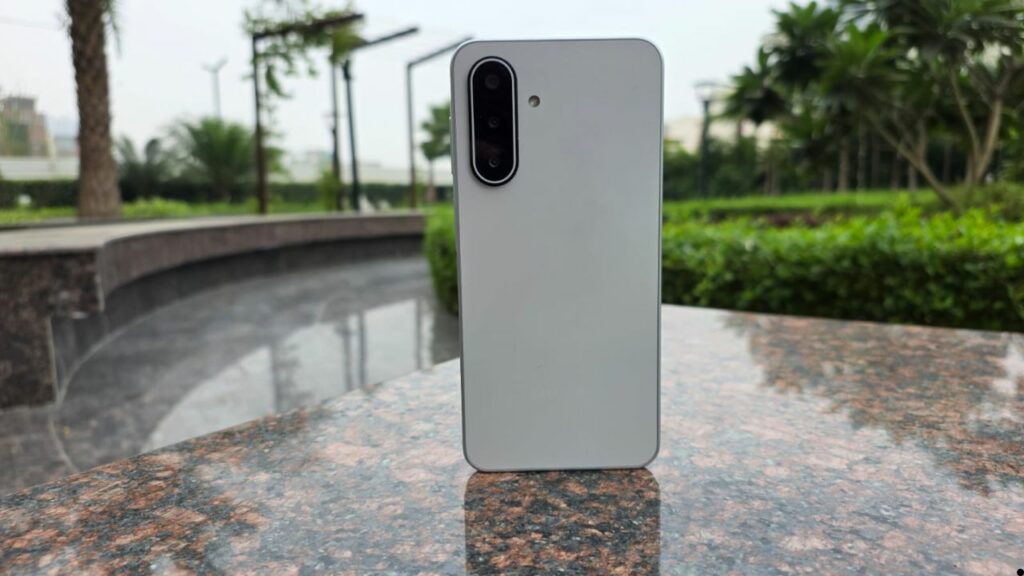
Samsung continues its minimalist design language approach with the Galaxy M17 which it has been following for now almost two years. The phone sports an all-plastic build that feels sturdy without being bulky. At 192g and 7.5mm thick, it is lighter and slimmer than most of the phones in this price range. Rounded corners and curved edges make it more comfortable to grip over long periods and the matte finish resists fingerprints reasonably well.
The volume and power buttons are tactile and the fingerprint reader built into the power button unlocks the phone quickly, though the on-screen animation feels slow. The back panel keeps things clean, housing a pill-shaped camera module that s does wobble a bit on a flat surfaces when back panel is kept faced down.
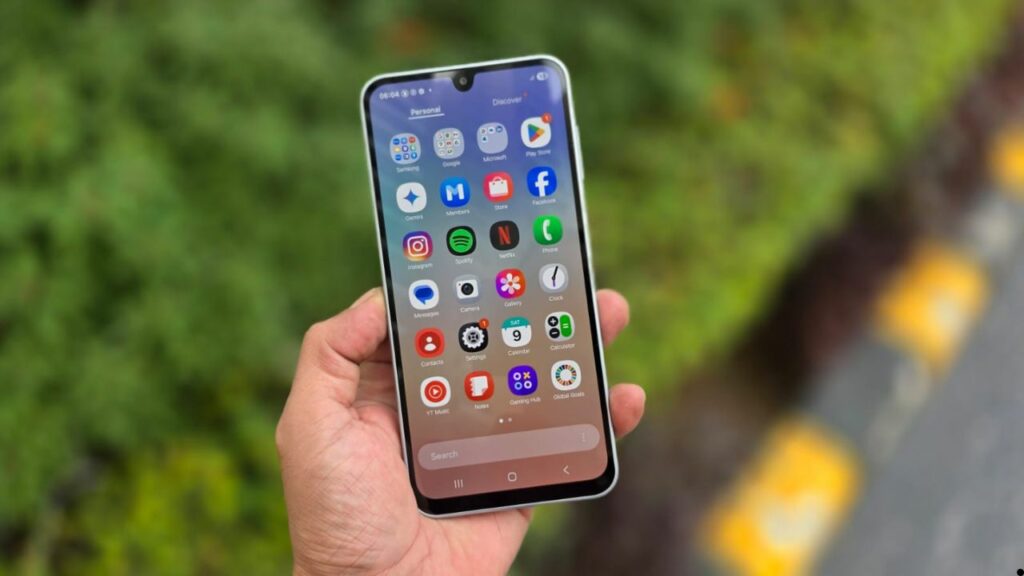
One of the standout touches in Galaxy M17 is the display protection. It uses Corning Gorilla Glass Victus, a layer normally reserved for premium phones. After three weeks of daily use — without a case or screen protector — the screen remained free of scratches, suggesting Samsung’s focus on durability is not misplaced.
Display and Multimedia
The 6.7-inch FHD+ Super AMOLED Display is one of the device’s biggest strengths. In this price band, only a few rivals offer it, which is good for consumers, as it gives them options. The Galaxy M17’s display produces sharp visuals and balanced colour tones without oversaturation.
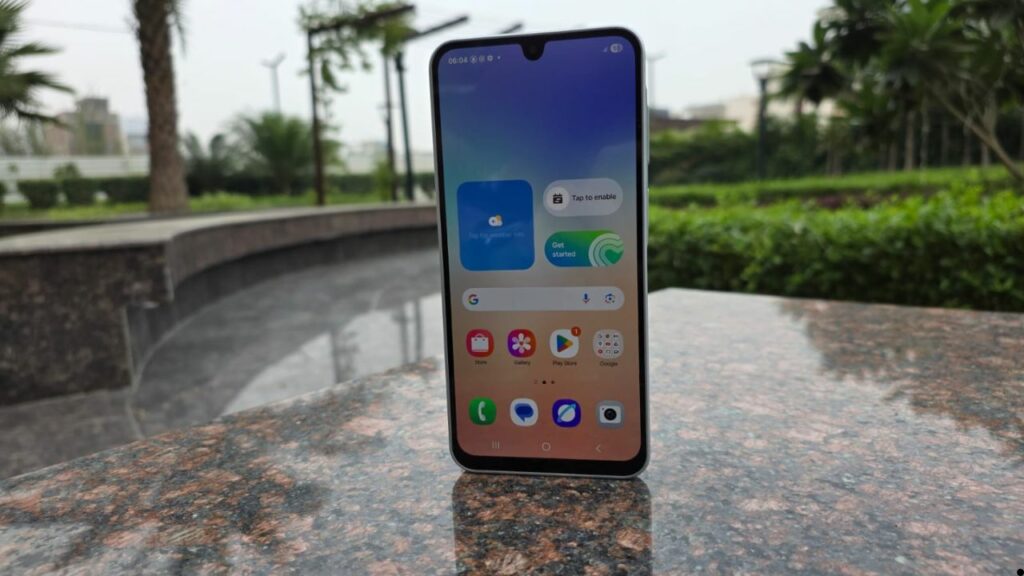
The 90Hz Refresh Rate keeps animations smooth enough for daily use, though phones with 120Hz panels do feel more fluid when scrolling. The screen houses a waterdrop-style notch which looks old school and a noticeable bottom chin but Samsung compensates by allowing users to mask the notch in apps like YouTube for a cleaner viewing experience.
Audio quality from the single bottom-firing speaker of Galaxy M 17 is better than expected — clear vocals and reasonably balanced output even at higher volumes. However, despite the AMOLED panel, there’s no Always-On Display (AOD) option, which feels like a missed opportunity for Samsung’s AMOLED expertise.
Cameras
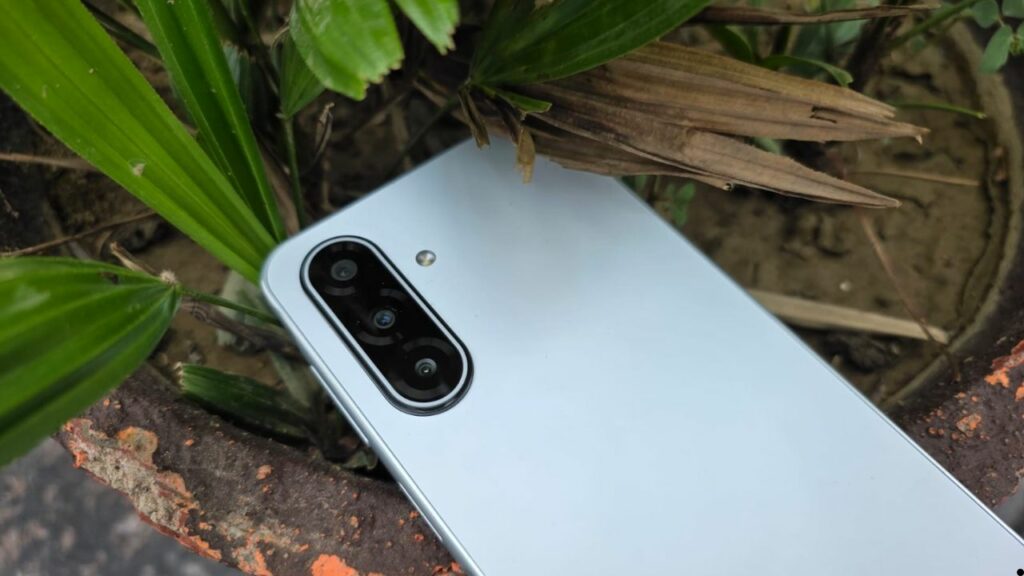
The Galaxy M17 packs a 50MP OIS-enabled main camera, supported by a 5MP ultrawide and a 2MP macro lens. The 13MP front camera handles selfies. The inclusion of OIS for phones under ₹15,000 is a noteworthy addition, especially for users who want to avoid blurry snaps caused by shaky hands.

In daylight, the main sensor captures realistic colour tones with balanced dynamic range, though low-light performance introduces noticeable noise. Outdoor shots retain good detail and natural saturation, but highlights can blow out when shooting reflective or shiny subjects.
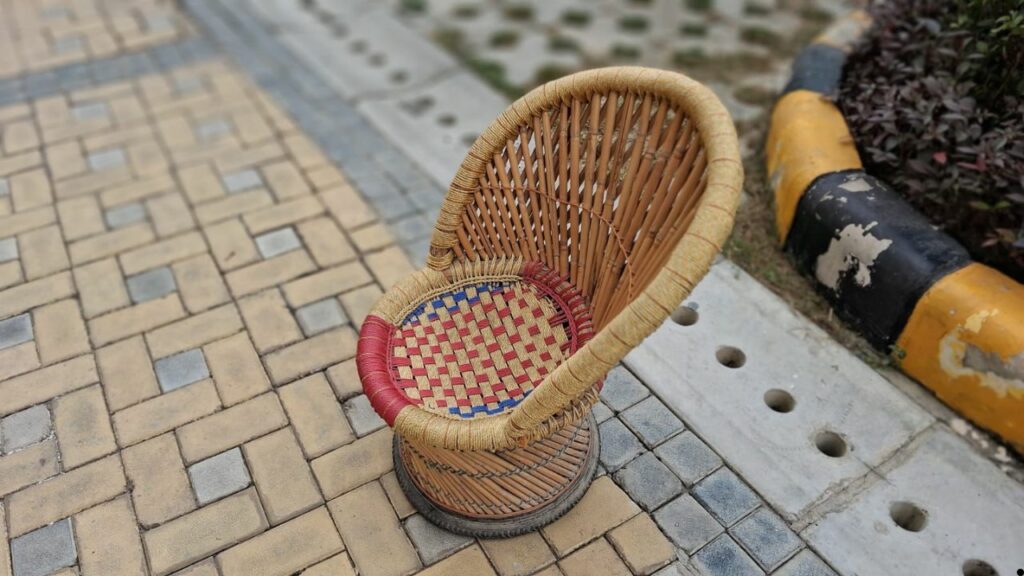
The ultrawide lens offers a broader perspective but loses detail and colour consistency. Selfies, however, turn out well — especially outdoors — maintaining good white balance and pleasing skin tones. Portrait mode produces usable results, though EDGE detection occasionally struggles with finer hair or accessories.

Its Night mode improves exposure but alters the colour, trading realism for brightness.

Performance and Software
Performance is where the Galaxy M17 takes a conservative route. It is powered by Exynos 1330 chipset, which is a couple of years old mid-range Processor paired with up to 8GB RAM and 128GB UFS 2.2 storage. The phone has enough muscle power to handle daily tasks like browsing the web, using social media and light multitasking without any issue. However, it does sometimes stutter when you switch apps or scroll through heavy feeds.
Gaming performance is modest. It’s not a phone built for gaming enthusiasts but casual players will manage fine.
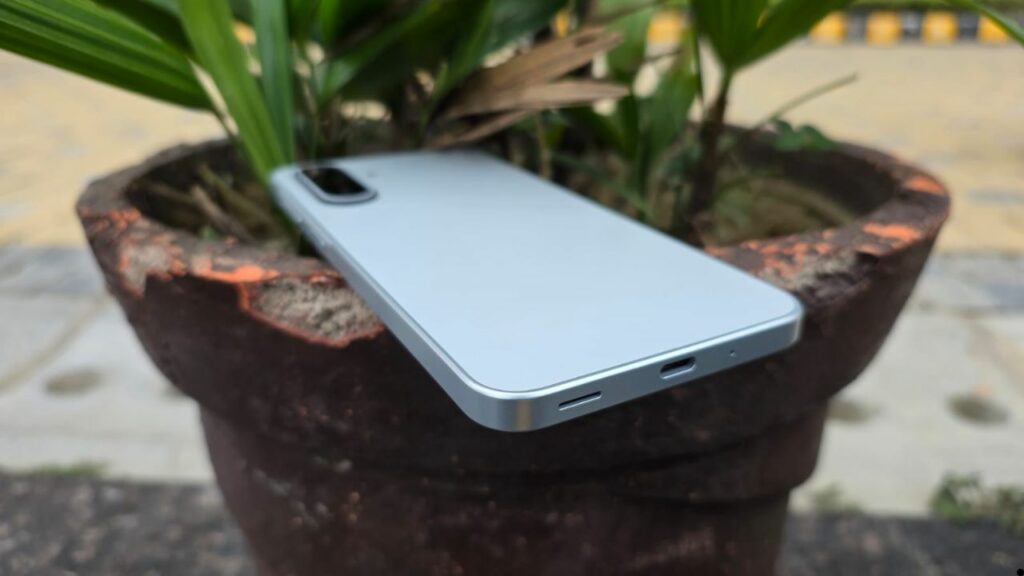
Software support is where Samsung pulls ahead of the competition. The Galaxy M17 ships with Android 15-based One UI 7 and received One UI 8 (Android 16) during the review period — proof of Samsung’s timely update commitment. The company promises six years of OS and security updates, setting a new benchmark in the budget space.
One UI remains feature-rich yet mature, offering strong privacy controls, a refreshed lock-screen setup, and productivity shortcuts like the Now Bar for quick access to timers and music. The inclusion of NFC support for contactless payments via Samsung Wallet, Google Pay, or Paytm adds a premium-grade convenience not often found in this price bracket.
Battery and Charging
A 5,000mAh battery powers the Galaxy M17, offering solid endurance. In testing, it comfortably lasted more than a day of mixed use, including video playback, social browsing, and calls.
Charging is capped at 25W. A full top-up from 20 to 100 percent took roughly 75 minutes using a third-party 65W charger. The absence of a charger in the box, however, is a drawback for first-time buyers who don’t already own a compatible adapter.


